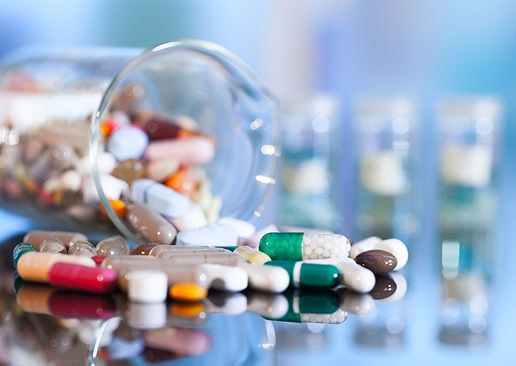Did you or a loved one use Risperdal and suffer from gynecomastia?
Risperdal is an antipsychotic drug approved to treat schizophrenia, schizoaffective disorder, bipolar disorder, and autism spectrum disorders. It has also been commonly prescribed “off label” for attention deficit hyperactivity disorder (“ADHD”). At its peak in 2007, Risperdal’s annual sales topped $4.5 billion. Risperdal is also associated with serious side effects, including a condition known as gynecomastia – the development of abnormally large breasts in boys and young males which resemble female breasts.
Risperdal
Risperdal is the brand name of the drug risperidone, which is an antipsychotic drug approved to treat schizophrenia, schizoaffective disorder, bipolar disorder, and autism spectrum disorders. Initially, Risperal only received approval for use in adults. Later, it was approved for use in children and adolescents. Risperdal is part of the second generation of drugs in the class known as atypical antipsychotics. Risperdal has also been commonly prescribed “off label” for attention deficit hyperactivity disorder (“ADHD”), anxiety, depression and sleeping difficulty.
Risperdal was first approved in 1993 by the United States Food and Drug Administration (FDA). Risperdal is marketed in the United States by Johnson & Johnson (J&J), and has been a huge moneymaker for the company and its Janssen Pharmaceuticals unit. At its peak in 2007, Risperdal’s annual sales topped $4.5 billion making it what is commonly referred to in the pharma industry a “blockbuster drug.” Risperdal generated worldwide sales of more than $24 billion from 2003 to 2010.
Risperdal is associated with serious side effects, including a condition known as gynecomastia. Gynecomastia is the development of abnormally large breasts in boys and young males which resemble female breasts. How does Risperdal cause an adolescent male to develop female breasts? Risperdal can significantly increase the levels of a hormone known as prolactin, which stimulates the development of breasts and the production of breast milk in women. When prolactin levels are substantially increased in males, a similar process can occur.
Gynecomastia does not merely cause the accumulation of fat in the chest area, but also causes the development of excess glandular tissue. The degree to which the breasts grow can vary, and while it usually occurs in both breasts, it can also affect just one breast or can develop differently between the breasts, potentially causing even more social stigma for those that are afflicted in this way. In certain cases, males suffering from gynecomastia also produce breast milk.
Johnson & Johnson’s Illegal Marketing of Risperdal
J&J has faced accusations in numerous states of illegally marketing Risperdal, for use in children for years before it was approved by the FAD for this indication. J&J has also been accused of offering doctors payments to speak in favor of the drug’s use in children and adolescents. Due to its illegal marketing practices, J&J has faced fines and court awards totaling hundreds of millions of dollars to state regulators around the country.
In November 2013, J&J also agreed to pay up to $2.2 billion to settle an investigation by the United States Department of Justice into its illegal marketing practices. The settlement was the largest ever of its kind and the proceeds were split between the federal government and many states.
Risperdal Litigation & Trial Update
Hundreds of lawsuits involving Risperdal-induced gynecomastia have been filed in state and federal court around the United States. These cases are at various stages of litigation. A handful of Risperdal trials have taken place, some of which have resulted in settlement.
In September 2012, J&J settled a case for an undisclosed amount on the first day of trial in a Pennsylvania state court case filed in Philadelphia. Press reports indicate that J&J then settled five additional Risperdal cases set for trial a month later.
In February 2015, a jury in Philadelphia, Pennsylvania, returned a $2.5 million verdict in favor of an autistic boy who developed 46DD breasts after using Risperdal from 2002 to 2006. The case, Pledger v. Johnson & Johnson, was the first to go to trial in more than 1,300 Risperdal actions filed in the Complex Litigation Center in Philadelphia’s Court of Common Pleas.
During the trial in Pledger, Plaintiff’s counsel demonstrated that Johnson & Johnson failed to turn over critical information to the FDA that Risperdal could increase prolactin and cause gynecomastia. Dr. David Kessler, the former FDA Commissioner, testified as an expert for the plaintiff in the case.
In March 2015, another Philadelphia jury found that J&J failed to properly warn of the risk of gynecomastia from the use of Risperdal, although the jury determined that the plaintiff’s use of Risperdal was not the substantial contributing factor to his breast development and awarded no damages.
Contact Lewis Saul & Associates, P.C. To Discuss Your Rights
If you or a loved one used Risperdal and suffered gynecomastia, you may be entitled to pursue a claim against the manufacturers for damages. For a free and confidential case evaluation, please call our office toll-free at (888) 747-5342 or complete our online contact form and we will promptly respond to your inquiry.

